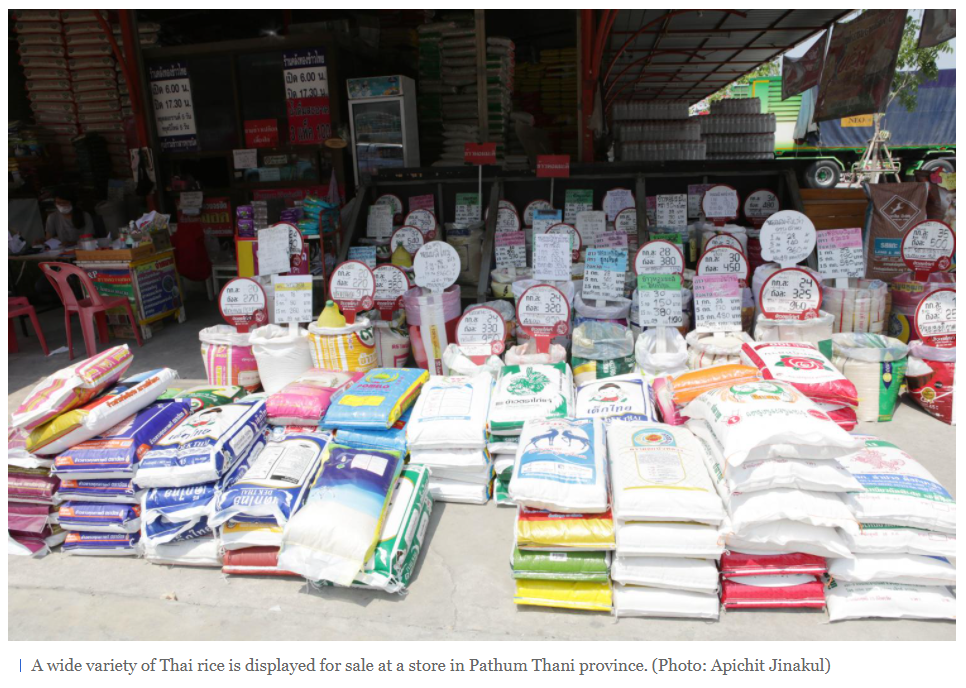Thailand: Weak baht to fuel rice exports
Thai rice exports are expected to continue to increase for the rest of this year, helped by the weak baht and relatively low prices.
Chookiat Ophaswongse, honorary president of the Thai Rice Exporters Association, said he was bullish about Thai rice export prospects for the remaining months of 2021 after exports tallied only 2.8 million tonnes in the first seven months, an average of 400,000 tonnes a month. This is below the export target average of 500,000 tonnes a month, or 3.5 million tonnes during that period.
The price of 5% white rice in the domestic market is quoted at 12 baht per kilogramme, down from 16 baht per kg earlier in the year, while that of Thai hom mali rice was 20 baht per kg, down from 26-27 baht per kg.
The free-on-board price of 5% Thai white rice is now quoted at US$380 a tonne, while Indian white rice stands at $370 a tonne, and Vietnam’s similar grains at $380-$385 per tonne.
“The prices of Thai rice are now competitive against those of its competitors, leading importers to buy more Thai rice,” said Mr Chookiat.
“Over the remaining five months, rice exporters expect to average 600,000-700,000 tonnes a month, leading Thai rice exports to meet the target of 6 million tonnes for the whole year.”
However, he said important obstacles persist, specifically container shortages, limited shipping spaces and expensive freight rates, notably in routes to the US and Europe.
For instance, the freight rate to New York has surged to $18,000 per container from $3,000-4,000 in the period before the Covid-19 outbreak.
According to Mr Chookiat, another key area of concern is labour shortages. If Covid-19 infections keep rising, he suggested the government accelerate the allocation of jabs to foreign workers.
In a related development, Keerati Rushchano, director-general of the Foreign Trade Department, said Thai rice exports to Malaysia look promising for the second half of this year as the Malaysian government’s rice import regulatory agency, Padiberas Nasional Berhad (Bernas), is keen to import rice from Thailand.
Mr Keerati said that following a video conference call with Bernas’s representatives on Aug 9, he was informed that Malaysia’s rice production is unlikely to meet local demand this year, prompting it to import roughly 900,000 tonnes from Thailand, which is 30-35% of Malaysia’s total consumption.
The imports are expected to start in the second half of 2021, he said.
Malaysia imported 1.08 million tonnes of rice last year, largely from India, Pakistan and Vietnam because of cheaper prices.
Source: https://www.bangkokpost.com/business/2164595/weak-baht-to-fuel-rice-exports


 Thailand
Thailand




